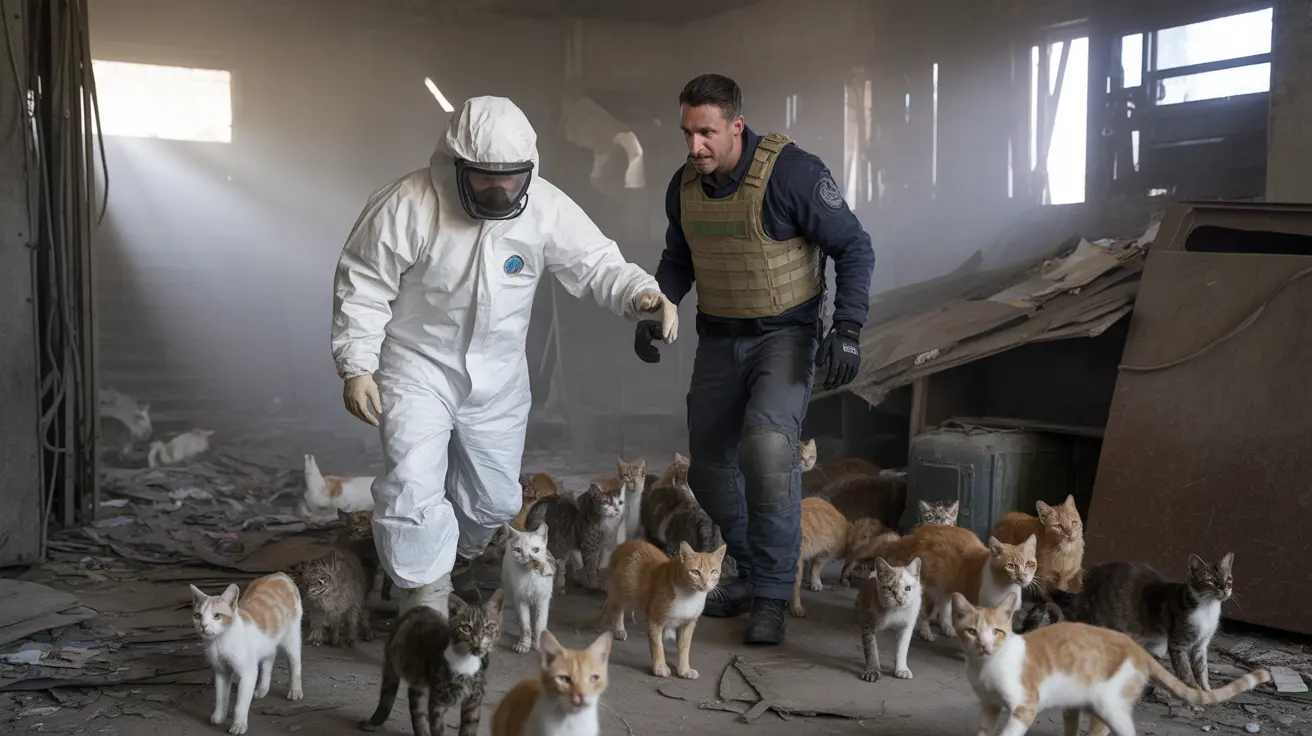A major animal rescue Central Falls operation unfolded this week when the Rhode Island SPCA and partner organizations removed 50 cats and dogs from a home in deplorable conditions. The large-scale rescue highlights the ongoing challenges of animal neglect Rhode Island communities face and the critical role of local rescue organizations in protecting vulnerable pets.
The rescue took place on Monday in Central Falls, where dozens of animals were living in what officials described as squalid conditions. This incident serves as a stark reminder of the importance of community vigilance and the dedicated work of animal welfare organizations across Rhode Island.
Large-Scale Animal Rescue Operations Require Community Support
When the Rhode Island SPCA responded to the Central Falls situation, they encountered conditions that required immediate intervention. Large-scale animal rescues like this one demand extensive resources, including emergency medical care, temporary housing, and specialized staff trained to handle traumatized animals.
The 50 animals removed from the home will now require comprehensive veterinary evaluations, behavioral assessments, and rehabilitation before they can be considered for adoption. This process can take weeks or months, depending on each animal's individual needs and the severity of neglect they experienced.
Animal Hoarding Signs Every Pet Owner Should Recognize
Animal hoarding investigations often begin with concerned neighbors or community members who notice warning signs. Recognizing these indicators can help prevent situations from escalating to the point where dozens of animals suffer in silence.
Common signs include strong odors emanating from a property, animals appearing malnourished or untreated for medical conditions, and homes with broken windows or poor maintenance. Property owners who keep large numbers of animals without proper care, veterinary attention, or adequate living space may be struggling with hoarding behaviors that require professional intervention.
Foster Care for Rescued Animals: A Critical Need
Following large-scale rescues, foster care for rescued animals becomes essential to the recovery process. Emergency shelters can quickly become overcrowded when 50 animals arrive simultaneously, making foster families a vital resource for providing individualized care and attention.
Foster families help animals decompress from traumatic situations in quiet, loving home environments. This transition period allows pets to receive necessary medical treatment while beginning to trust humans again. Many rescued animals require specialized care for medical conditions or behavioral issues that developed during their time in neglectful situations.
How Communities Can Support Animal Welfare Rhode Island Efforts
Community animal rescue support takes many forms beyond fostering. Animal shelter donations help organizations like the Rhode Island SPCA maintain emergency response capabilities for situations like the Central Falls rescue. Monetary donations fund veterinary care, food, supplies, and facility maintenance necessary for rehabilitation efforts.
Best Friends Animal Society Rhode Island and similar no-kill shelter Rhode Island organizations also benefit from volunteer support. Volunteers help with daily animal care, administrative tasks, and community outreach programs that educate residents about responsible pet ownership and animal welfare.
Trap-neuter-return Rhode Island programs also play a crucial role in preventing overpopulation situations that can contribute to neglect cases. These community-based initiatives help manage stray and feral cat populations while reducing the number of animals entering shelter systems.
Pet Rescue After Neglect: The Road to Recovery
The animals rescued from Central Falls face a challenging but hopeful journey ahead. Pet rescue after neglect requires patience, medical intervention, and often behavioral rehabilitation to help animals overcome trauma and learn to trust again.
Veterinary teams will assess each animal for malnutrition, parasites, dental issues, and untreated injuries or illnesses. Some animals may require surgery or ongoing medical management for conditions that developed during their time in neglectful conditions.
Frequently Asked Questions
What should I do if I suspect animal neglect or hoarding in my neighborhood?
Contact your local animal control office or SPCA immediately. Document what you observe, including dates, times, and specific conditions you notice. Never attempt to intervene directly, as this could put you and the animals at risk.
How can I help animals rescued from neglect in Central Falls, Rhode Island?
Consider fostering animals if you have experience with pet care, donate supplies like food and blankets to local shelters, or make monetary contributions to support veterinary care and rehabilitation efforts. Contact the Rhode Island SPCA directly to learn about current needs.
What happens to animals after they are rescued from hoarding situations?
Animals receive comprehensive veterinary care, behavioral evaluation, and rehabilitation in foster homes or shelters. The process can take months before animals are ready for adoption, depending on their individual needs and the severity of neglect they experienced.
Why is foster care important for animals after large-scale rescues?
Foster homes provide quiet, individualized care that helps traumatized animals recover more effectively than in crowded shelter environments. Foster families can monitor animals closely for medical issues and help with socialization and trust-building that's essential for successful adoptions.
The Central Falls rescue serves as both a reminder of the work still needed to protect vulnerable animals and an example of how dedicated organizations and communities can come together to provide second chances for pets in need.






